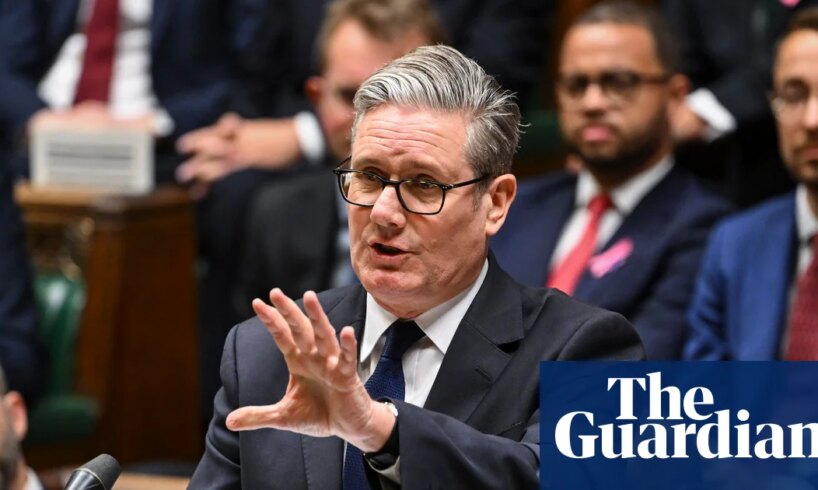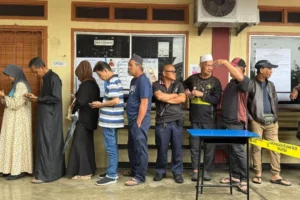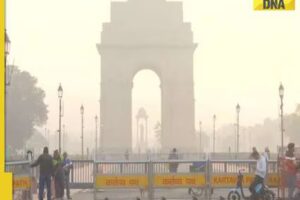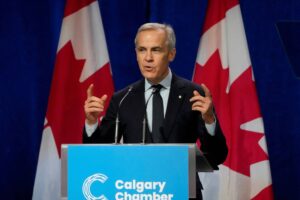
Downing Street will publish a witness statement from the deputy national security adviser that is seen as central to the decision to withdraw spying charges against two British men, Keir Starmer has said.
Updating MPs at the start of prime minister’s questions, Starmer said the statement by Matthew Collins would be released after a “short process” to ensure all the information within it could be published.
The Crown Prosecution Service cleared the way for the witness statement to be published late on Tuesday when it said it had no objection to its release, given that the case against Christopher Cash, a former parliamentary researcher, and Christopher Berry, a teacher, was no longer live.
The controversy began when prosecutors announced last month that they were abandoning charges of espionage against Cash and Berry on the basis that the evidential threshold required could no longer be met. Cash and Berry have always maintained their innocence.
The row has centred on the government’s willingness to submit evidence to the trial saying that China poses a threat to UK national security – considered necessary for a successful prosecution under the Official Secrets Act.
Labour ministers have argued that the evidence they submitted was based on the Conservative government’s position at the time when charges were brought.
The Conservatives have accused ministers of political interference in the trial, but Starmer said it was “absolutely not” the case and accused the Kemi Badenoch of a “completely scurrilous allegation”.
Downing Street told reporters after prime minister’s questions that Starmer did not see the evidence submitted by the government until Wednesday morning, and only found out about the impending collapse of the trial “a couple of days” in advance. The prime minister’s spokesperson insisted that it was not for Starmer to intervene in this scenario.
In a series of robust exchanges in the Commons, Badenoch accused Starmer of not being honest about what had happened. “The charges were brought under us, the case collapsed under them,” she said. “Can the prime minister tell us what changed and what collapsed the case?”
Starmer turned his fire on the Tories, saying that “it was their failure and they are just slinging mud”. He argued the only reason the case was withdrawn was because the previous Conservative government did not designate China as a threat to the UK.
“To be clear, had the Conservatives been quicker in updating our legislation – a review that started in 2015 – these individuals could have been prosecuted, and we would not be where we are,” he said.
Starmer added that Collins was a “civil servant of the utmost integrity” and that his witness statement had been made without political input. “Under this government, no minister or special adviser played any role in the provision of evidence,” he said.
“I can’t say what the position was of the previous government in relation to the involvement of ministers or special advisers. If the leader of the opposition knows the answer to that question, and I suspect that she does, I invite her to update the house.”
Badenoch demanded to know if there had been any discussions involving Jonathan Powell, the government’s national security adviser, and called for the release of any minutes and correspondence between the government and the CPS over the case.
“Exactly as I expected, the prime minister had to be dragged out at the top of PMQs to give a statement that answers no questions,” she said. “He had to be dragged out to repeat only more obfuscation. It is simply unbelievable that he is trying to say the last government did not classify China as a threat.”
skip past newsletter promotion
Our morning email breaks down the key stories of the day, telling you what’s happening and why it matters
Privacy Notice: Newsletters may contain information about charities, online ads, and content funded by outside parties. If you do not have an account, we will create a guest account for you on theguardian.com to send you this newsletter. You can complete full registration at any time. For more information about how we use your data see our Privacy Policy. We use Google reCaptcha to protect our website and the Google Privacy Policy and Terms of Service apply.
after newsletter promotion
The controversy has turned the spotlight on successive governments’ approaches to China and the security threats it poses.
Dominic Cummings, who served as Boris Johnson’s chief adviser, claimed on Wednesday that China had breached high-level systems to obtain “vast amounts” of classified government information for years.
Cummings told the Times that he and Johnson were told about the breach in 2020 and that it involved so-called Strap material, a government classification for highly sensitive intelligence material. “Material from intelligence services. Material from the national security secretariat in the Cabinet Office. Things the government has to keep secret. If they’re not secret, then there are very, very serious implications for it,” he said.
Cummings said that fundamental infrastructure for transferring sensitive data around the British state was compromised “for years” but did not give details on how the system had been breached. He said he would be willing to share what he knew with MPs if they were to hold an inquiry.
On Thursday, Ken McCallum, the head of the domestic security service MI5, is expected to spell out the threats posed by China in an annual security update. Whitehall insiders are frustrated by the failure to prosecute Cash and Berry and reiterate they stand by previous warnings about Chinese hacking and industrial espionage.
At prime minister’s questions, ex-Conservative ministers, including former foreign secretary James Cleverly, accused Starmer of misrepresenting their position on China and of obfuscating the real questions in the debate.
Tom Tugendhat, a former security minister, said the government was “trying to set up straw men and knock down things that have not been said”, and asked: “What political direction did this government give to their officials before they went to give evidence?”
In reply, Starmer said: “Absolutely none. And I will also tell him this: I was the chief prosecutor for five years, and I can say, in those five years, which included three years under the coalition government, where we were taking difficult decisions on MPs’ expenses, not once was I subjected to political pressure of any sort from anyone. That is the tradition in this country; it is a proud tradition. It is one I uphold.”





